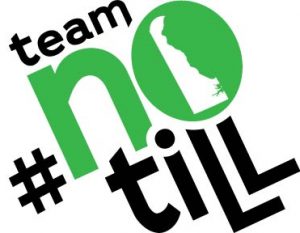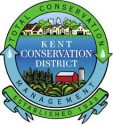THANK YOU FOR A GREAT NO-TILL NOVEMBER!
The Delaware Conservation Partnership would like to thank all participating farmers of the #teamnotill campaign this November. We hope that by sharing your no-till successes we can encourage more farmers to adopt this and other beneficial soil health practices.
Healthy soils are the key to fostering more productive and profitable farms over the long-term. If you are interested in learning more about how you can improve the health of the soil on your farming operation, please call your local USDA Service Center and ask to speak with a conservation planner.
Sincerely,
-The Delaware Conservation Partnership

ABOUT THE #TEAMNOTILL CAMPAIGN
The Delaware Conservation Partnership encouraged farmers to join “team no-till” this fall—by leaving the residue on harvested crop fields to improve soil health during No-Till November.
Improving soil health increases soil biological activity, which provides erosion control, nutrient benefits, reduces soil compaction and improves water quality.
The “#team no-till” campaign recognized those farmers who are practicing no-till and to invited the rest to keep tillage equipment at bay this fall and keep the crop stubble on their fields.
Learn More
Here are a few resources where you can learn more about the benefits of no-till farming:
- #TeamNoTill news release
- No Till Video with Delaware farmer Blaine Hitchens: No Till is maintaining crop residue throughout the year and planting directly into it. This video explores how Blaine Hitchens in Laurel, DE, is using this practice on his cropland to improve his soil health and reduce his input costs. Major benefits of this practice include: 1) Decreases erosion 2) Reduces input cost 3) Improves soil health 4) Reduces soil compaction 5) Reduces evaporation
- Soil Health: Unlock the Secrets in the Soil Campaign– The resources on this soil health section of the NRCS site are designed to help visitors understand the basics and benefits of soil health—and to learn about Soil Health Management Systems from farmers who are using those systems. Two specific resources from NRCS that might be helpful include Using No-Till This Fall and Unlock your Farm’s Potential: Do Not Disturb
- Soil Health and Cover Crops Resource Page on this site for additional links, recorded presentations, and podcast episodes from local farmers
As world population and food production demands rise, keeping our soil healthy and productive is of paramount importance. By farming using soil health principles and systems that include no-till, cover cropping and diverse rotations, more and more farmers are actually increasing their soil’s organic matter and improving microbial activity. As a result, farmers are sequestering more carbon, increasing water infiltration, improving wildlife and pollinator habitat—all while harvesting better profits and often better

“According to Aldo Leopold, ‘Land is not merely soil, it is a fountain of energy flowing through a circuit of soils, plants and animals.’ Through the use of the foundational conservation practice of No-till farming, Delaware farmers will improve soil health and enhance water quality all while saving time and money.”
– Kasey Taylor, State Conservationist, USDA Natural Resources Conservation Service (NRCS)



